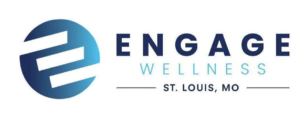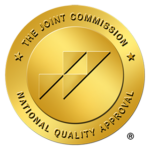PTSD and Substance Abuse | Dual Diagnosis Treatment in St. Louis
Post-traumatic stress disorder (PTSD) is a mental health condition that can develop after a person has experienced or witnessed a traumatic event, such as a natural disaster, accident, or act of violence. There’s a wide range of distressing symptoms that occur with PTSD, including intrusive thoughts, negative mood changes, and heightened reactivity.[1]
What Is PTSD?
PTSD is a disorder that’s classified as a trauma- and stressor-related disorder in the Diagnostic and Statistical Manual of Mental Disorders (DSM-5). PTSD may be caused by experiencing a traumatic event directly, such as a natural disaster, accident, or abuse, or witnessing a traumatic event firsthand.
Traumatic or life-threatening events may cause post-traumatic stress symptoms, such as heightened reactivity or intrusive memories, but this is distinct from PTSD. When the symptoms persist for more than a month and disrupt daily life, it’s PTSD. Based on research, about 90% of people experience a traumatic event in their lives, but only about 10% of people develop PTSD.[2]
Some people are at an increased risk of developing PTSD. Due to the types of traumas that affect women, they’re more likely to experience PTSD than men.[3] PTSD is also more common for combat veterans than civilians or veterans who were not in an active combat zone.
The risk factors for PTSD include:[4]
The signs and symptoms of PTSD can vary in their severity or type, but some common ones include:[5]
Addiction and Interaction with PTSD
Trauma and substance use have a clear link, and that link is stronger with PTSD and substance use disorders (addiction). These conditions are common co-occurring disorders, or dual diagnosis, which refers to the presence of a mental health condition and substance use disorder. Based on research, 44.6% of individuals with lifetime PTSD met the criteria for a substance use disorder involving drugs or alcohol.[6] The research also revealed that having PTSD increases the risk of developing a substance use disorder.

PTSD and Substance Use Disorder Causes
PTSD and substance use disorder may co-occur for several possible reasons:[7]
Treatment Challenges with PTSD and Addiction
Dual diagnosis, like PTSD and addiction, can add complexity and challenges to treatment. Many PTSD symptoms, including emotional dysregulation, insomnia, and anxiety, are also common symptoms of substance use or withdrawal. Identifying which condition came first and which symptoms belong to which condition can complicate diagnosis and treatment plans.
It’s difficult for people with PTSD to break the cycle of self-medication as well, especially if it provides temporary relief from symptoms like flashbacks or emotional pain. However, any relief that comes from substance use is short-lived, and using substances can even make symptoms worse.
There are additional challenges in treatment as well. If PTSD is related to trauma like physical or sexual abuse or assault, it may be difficult for someone struggling with PTSD to open up, trust others, and feel completely safe and secure in a treatment community. They may not engage fully in treatment sessions, inhibiting progress. Triggers are also possible in group treatment settings, which can fuel symptoms.

Dual Diagnosis Addiction and Depression Treatment Centers in St. Louis
Our dual diagnosis treatment approach at Engage Wellness involves multiple levels of care, including residential or inpatient treatment for PTSD and addiction, intensive outpatient programs (IOP) for PTSD and addiction, and trauma-informed care to meet you where you are in your recovery and provide the best level of support.
We work with each client to develop a personalized treatment plan, but here are some of the therapies we use in dual diagnosis treatment:
01
Family therapy for PTSD and addiction to address issues of conflict and communication in the family unit and improve support.
02
Group therapy for PTSD and addiction that brings together people going through similar struggles to offer support, shared experiences, and accountability.
03
12-Step groups like Alcoholics Anonymous (AA) that take a structured approach to recovery and relinquishing control to promote lasting recovery.
04
Cognitive behavioral therapy (CBT) for PTSD and addiction, which relies on identifying negative or unhelpful thoughts or behaviors and finding healthier coping strategies.
05
Dialectical behavioral therapy (DBT) for PTSD and addiction to help regulate emotional responses and develop distress tolerance.
06
Eye movement desensitization and reprocessing (EMDR) therapy, a trauma-focused therapy that helps with processing and healing past trauma.
07
Holistic treatment for PTSD and addiction that promotes whole-person healing with mindfulness, art therapy, meditation, and yoga.
08
Veterans programs, which are ideal for PTSD brought on by combat trauma and address the unique challenges combat veterans experience after reintegrating into civilian life.



